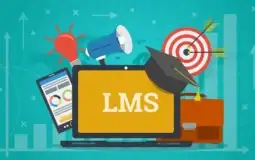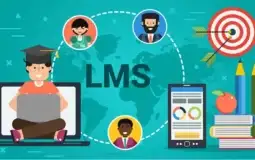If you run a business, do you still rely on a solution you host on your server for all your employees’ learning needs? If that’s the case, you’ve probably struggled with everyday computer tasks like updating software and downloading new programs. Just as usual. More so, you can be subject to additional fees for the same! Why not just switch to a cloud-based learning management system and avoid all these outdated and costly procedures? More and more companies are switching to LMS since it greatly lessens their effort by eliminating the need to manage software updates and downloads. Managing and updating your online training materials is as easy as logging into the system. Here are the top reasons to help you make an informed decision about why you need to switch to a new LMS.
Problems with Tech Support:
There will always be a period of time when a software solution is inaccessible. This could be due to routine maintenance, a bug, or external forces. Considering the wide variety of potential causes for downtime, your LMS supplier must make every effort to minimize it while still providing timely and efficient support. Purchasing an LMS is a big deal for any business, so if you need more assistance, look elsewhere.
Feature Restriction:
You may be dissatisfied with your current LMS because it lacks essential functionalities. Developing high-quality online courses may be hampered by the features of your LMS. It may prove to be an obstacle in your path to superiority over the competition. Changing to a different LMS that fits your specific needs and expectations may be a good idea.
Poor Quality of Customer Service:
When your support staff isn’t available during the day, your LMS should have an auto-responder to help guide learners through any problems they may be having. Comparatively, poor systems may have slow replies, condescending tech support, and an inability to fix errors. Learners frequently struggle with elementary problems, such as forgetting their login information or encountering access challenges. On the other hand, they may be unfamiliar with the system and unsure what questions to ask. The most helpful systems will go out of their way to assist clients who aren’t particularly tech-savvy.
You Need To Upgrade Your Learning Management System (LMS) Because:
Even if you spend a lot of time and money developing unique software, it may become obsolete before you know it. Lack of support for emerging eLearning material formats, failure to implement mLearning, and gathering and reporting of irrelevant data are all potential outcomes. You have two choices: convert to a new third-party LMS like Litmos, or engage a full-time developer to modify your outdated platform further. Think about the pros and cons of each major learning management system before making a decision.
Poor Analytics and Reporting:
In order for an LMS to analyze vast amounts of data and produce relevant insights, analytics is a crucial component of the learning process. The functionality for effective reporting and analytics is not provided by all LMS vendors, though. To make it simpler for your L&D experts to assess the success of courses, enhance the learning experience, and take strategic action, you must have robust reporting capabilities.
Expensive:
Don’t forget about the maintenance charges, even if it seems like you’re getting an LMS for a great deal. You should also compare the costs of a self-hosted LMS to one cloud-based. It can be challenging to determine the exact cost of an LMS because, in addition to setup costs and annual licensing fees, you also have to budget time for staff training and pay in-house developers to produce new content. Although it can significantly reduce expenses, some LMS incorporate employee training as part of their services.
Your Organisation Has Outgrown Its Learning Management System:
For example, maybe you want to establish a new employee incentive program, connect the training data to the company’s BI system, or significantly increase the number of learners. Still, your present platform doesn’t allow for any of these things. You should contact your service provider to inquire about their intentions for further platform development. It’s possible that your issue can be resolved by simply ordering a project-specific modification or integration with a third-party service. It may be time to start thinking about switching platforms if these constraints limit your present setup.
Conclusion
In eLearning, a learning management system (LMS) is a must-have, yet no universal LMS will work for every institution. If your current learning management system (LMS) isn’t quite what you’re looking for, a custom solution can help bridge the gap. You may implement an LMS that supports your company operations and can grow with you by investigating your alternatives, sketching out features, and completing acceptance assessments.


